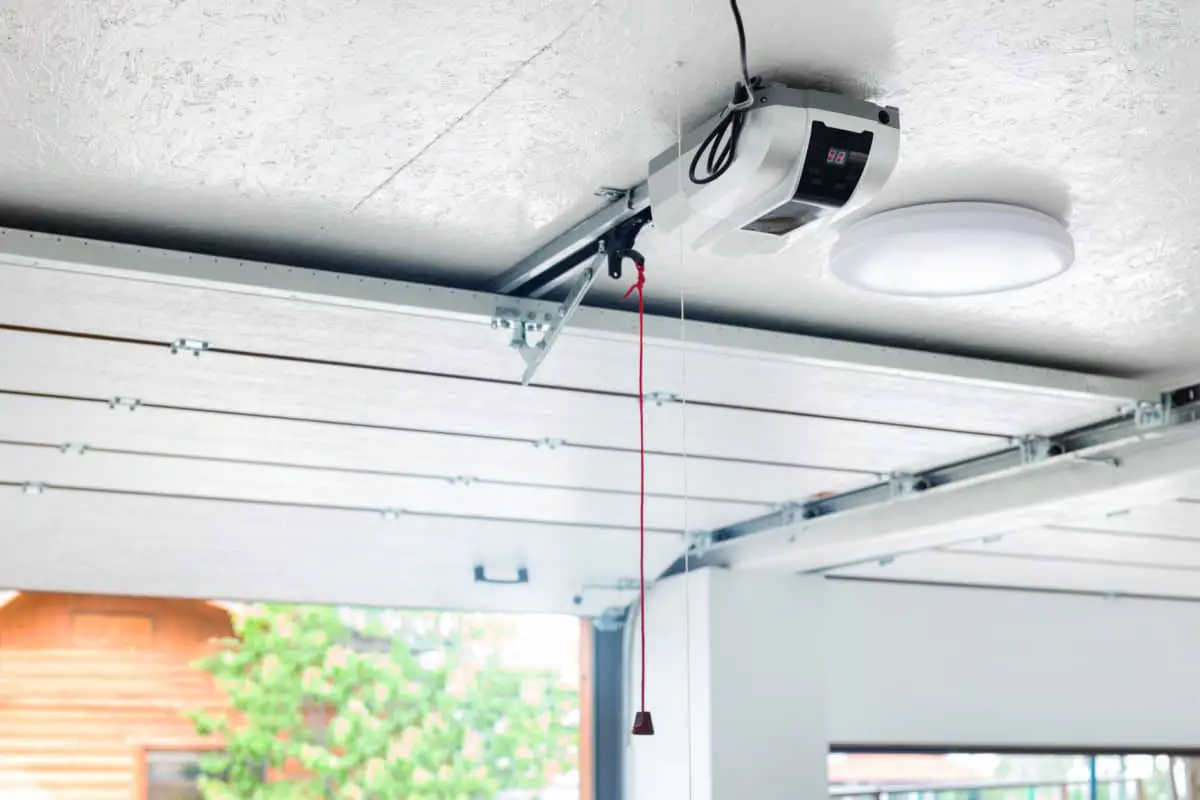The days of manual garage doors are swiftly fading and are being replaced with automatic garage doors. Automatic garage doors are powered electronically and go up and down with the push of a button. However, one of the most common questions that people have is whether or not garage doors need their own dedicated electrical circuit.
Garage doors don’t use up much power and don’t require a dedicated circuit. In most cases, the garage door is wired into the rest of the electrical outlets in the garage. You can even have multiple garage doors on the same circuit if desired.
Electricity is a complex area of expertise, and it’s challenging to know what all the code regulations are. If you’re still curious about how a garage door should be factored into your garage’s electricity, this article will have the answers.
What Size Circuit Does a Garage Door Breaker Need to be?
In 2017, the NEC updated its code requirements for what breaker size is required in garages. While a 15-amp breaker used to be sufficient, all new garages and those having rewiring done should have a 120-volt 20-amp circuit breaker for the garage. This breaker is the same size that’s required in bathrooms, kitchens, and laundry rooms.
Additionally, all of the lights in the garage should be on a separate circuit from the receptacles. If you have lights with cords on them, you can optionally plug them into the same outlet that your garage door is plugged into. However, if possible, you should plug them into a separate circuit.
A 20-amp circuit breaker for your garage can handle up to three or four garage doors at a time. However, you can have more garage doors wired into the same circuit as long as you’re not trying to open and close all of them at the same time. You should also remember that the rest of your garage outlets are wired into the same circuit. Depending on what you have plugged into them and operating could inhibit your ability to use your multiple garage doors.
How Much Power Does a Garage Door Use?
Automatic garage doors have come a long way in terms of efficiency. This makes them capable of being on the same circuit as the rest of your garage.
Most modern garage doors have small motors that are ¼ or ½ horsepower. They typically use anywhere between 1,100 to 1,400 watts when they initially start to open or close. However, once the process is started, the watt usage goes down to 550 to 725 watts.
The amount of watts also depends on whether or not your garage door opener has a light on it. Most of them do, but they’re usually LED and use a minimal amount of watts. As long as you have a 20-amp circuit breaker, you don’t have to worry about your garage door opener overloading the circuit and tripping the breaker.
Do I Need a Dedicated Outlet for a Garage Door?
While you don’t need a dedicated breaker for your garage door or doors, it’s not a bad idea to have a dedicated outlet. Having a dedicated outlet makes it easier to identify any problems in your circuit. It also ensures that you won’t overload your outlets and cause a breaker to trip and be locked out of your garage.
It’s becoming common practice, however, to install hanging LED lights in garages. If you decide to go this route, it’s ok to plug them into the same outlet your garage door is plugged into. LED lights use minuscule amounts of electricity and won’t present a problem.
Does a Garage Door Outlet Need to be GFCI Protected?
Garage door outlets are located on the garage ceiling next to or behind the opener itself. As a result, they will usually be anywhere from 8 to 12 feet above the garage floor, and water isn’t a potential hazard for them. However, because your garage door outlets are typically wired into the rest of your garage outlets, they should have GFCI protection.
Therefore, your garage door outlets will be downstream from other outlets that are GFCI protected. However, your garage door outlets should never have test/reset buttons on them as they are too high to be readily accessible.
